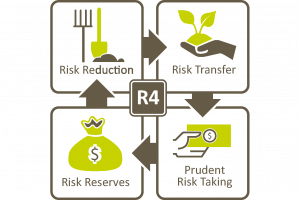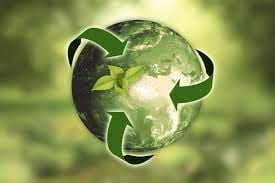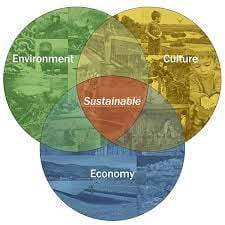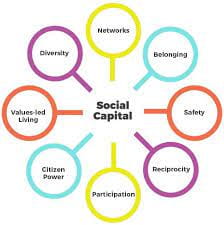Communities Becoming Resilient
Initiatives
While living in a time of accelerated social and environmental change, resilience research serves to create regions that are more resilient to harmful climate change and other natural hazards due to the way we choose to live. Initiatives are impactful in a way that improves the well-being of humanity as well as economic and ecological conditions.
Resilience Initiatives:
 Atlanta must explore and identify its vulnerabilities to create and recommend mitigation actions to build towards further resiliency against climate change. They must narrow down the most important vulnerabilities that the city faces. The city must possess strong ways to manage risks in a time where environmental and climate change can impact and halt urban/economic development, reduce standards of living, and prevent social equality. Climate change resilience in urban settings is significant because of the concern in increasing temperatures, rising sea levels, volatile weather patterns, and other changes within the city’s climate.
Atlanta must explore and identify its vulnerabilities to create and recommend mitigation actions to build towards further resiliency against climate change. They must narrow down the most important vulnerabilities that the city faces. The city must possess strong ways to manage risks in a time where environmental and climate change can impact and halt urban/economic development, reduce standards of living, and prevent social equality. Climate change resilience in urban settings is significant because of the concern in increasing temperatures, rising sea levels, volatile weather patterns, and other changes within the city’s climate.
Resilience Initiatives that help to mitigate the negative impact of climate change
These initiatives help to fight against and cope with life’s surprises by helping to reduce the admission of greenhouse gases, provide agricultural benefit to the city, health care, and create a more resilient infrastructure contributing to further sustainability.
Initiatives:
- EV Rideshare Program: Mayor’s Office of Resilience and the Department of Corrections have partnered with Common Courtesy, Inc., a not for profit that provides transportation services to those with low mobility access, to provide transportation services using zero-emission vehicles to previously incarcerated individuals.
- Clean Energy Plan: In 2017, City Council voted to move Atlanta to 100% clean energy (energy-efficient and renewable energy sources including solar and wind power). The plan prioritizes equity and affordable clean energy options. City Council’s adoption of Clean Energy Atlanta will set the course for an action-oriented implementation process in the years to come.
- AgLanta Grows – A – Lot: Program that invites entrepreneurs, non-profits, and residents to apply for a 5-year, renewable license to adopt a vacant, city-owned property to start an urban garden or farm.
- Sustainability Ambassadors: an 8-week course that trains and educates City of Atlanta residents and youth on best sustainability practices.
- Ted Turner Resilience Design Competition: Design competition among Atlanta- based colleges and universities to transform Ted Turner Drive into a national example for resilient street design. University of Georgia student winners was announced on May 7, 2018.
- NRDC’s Food Matters: Partnering with The Natural Resources Defense Council (NRDC) via 100RC to build resilience by reducing food waste and rescuing surplus food. NRDC’s Food Matters project is focused on helping cities design and implement innovative solutions to address food waste and rescue surplus food.
RED Lab: Atlanta Resilience: Equity and Design Collective (RED) is a resilience lab OoR is piloting with GA Tech. The Lab is designed to help residents use data and technology to solve community issues that contribute or detract from the resilience and livability of their neighborhoods. Early projects are addressing code enforcement and rat issues. - Alternative Fuel Conversion Plan: Through a strategic partnership with the Electrification Coalition (EC) the Mayor’s Office of Resilience developed Atlanta’s Alternative Fuel Conversion Plan published July 2018. This nine-page document serves as a guide for the City to achieve its commitment of transitioning 20% of its suitable fleet to electric vehicles by the end of 2020.
- Parks and Greenspace – The Department of Parks, Recreation and Cultural Affairs is to provide all residents and visitors with the highest quality parks, facilities, recreational programs and cultural experiences. Introduced in 2005, the Greenspace and Recreation Opportunity Bond provides $105 million in bonds for land acquisition, new recreation amenities, and badly needed infrastructure improvements. In addition, greenspace and bike trails will be added along the BeltLine project. For more information about the efforts of the Department of Parks, Recreation, and Cultural Affairs.
(Atlanta, GA. Resilience Initiatives | Atlanta, GA. (n.d.). https://www.atlantaga.gov/government/mayor-s-office/executive-offices/office-of-resilience/sustainability-initiatives.)
Australia Coal-Fired Power Stations
The Article “Exploring the Perceived Health, Community, and Employment Impacts of an Announced Closure of a Coal-Fired Power Station in Upper Hunter Valley, Australia” discusses a city in New South Wales, Australia, and their focus to concentrate on energy generation from renewable sources instead of burning coal to produce ideal opportunities that will better the environment for its community, “In July 2016, the Hunter Energy Transition Alliance published its Blueprint Report that discusses the main strength of the area being water, new energy innovation, land use opportunities, and opportunities for agribusiness and innovation (Energy & Resources Knowledge Hub, 2016). According to the focus groups, diversification of industries would mean a greater chance of returning communities to a more balanced, healthier economic and social lifestyle rather than the main heavy mining emphasis; some participants said they felt “solastalgia,” which is a neologism to describe depressed feelings produced by the chaotic appearance of the environment around them (Albrecht et al., 2007; Daley, 1999).”
Before being able to initiate changes through resilience that may lead to an environmental transition, the author believes that there is an underlying culture of ignorance that should not be excused. We must be able to educate everyone and have there be an understanding of the effects of environmental injustice pertaining to climate change. The lack of understanding about toxic chemicals and health and the lack of knowledge about renewable energy needs to be addressed through investment in community health education, renewable energy education, and educational support to provide new renewable training opportunities for workers. When there is a diverse use of renewable energy sources it solidifies a healthier balance between societal aspects which includes economics, social lifestyle, culture, and an understanding of all demographics of people. Instead of using the more common energy source of fossil fuels and specifically, coal, using renewable energy sources can make a city more sustainable to live within helping to fight against climate change that may take a toll on the mental and physical health of the residents living in that city.
Counter Arguments
Arguments against community resiliency state that public health professionals working with neighborhoods that are deprived would be better to focus on what these neighborhoods could develop as social capital for living well rather than focusing on the notion of community resilience initiative plans. Social capital is a value within a community that allows individuals to work together in a group in order to achieve a common purpose efficiently. It can be a foundation for a community’s disaster resilience. Social capital can enable collective action and provide self-organized social, psychological, financial, and material resources following a disaster. It is a theory that contends social relationships being resources that can lead to the development and accumulation of human capital through genuine interactions creating reproductive benefits for the community and society.
The use of resilience initiatives has helped to aid the city of Atlanta to push forward and combat the issues brought on by environmental climate change. Atlanta’s resilience initiatives fight against climate change using action plans that are specifically focused on bettering air quality through that of renewable energy efforts. Resilience is having the capacity to recover quickly from difficulties through that of preparedness. Renewable energy efforts and the distribution of renewable energy equitably are important topics because they prepare us by reducing GHG emissions and the use of fossil fuels which negatively effect climate change which in turn affects public health and quality of life. Resilience initiatives focus on making cities more sustainable for not only the people who currently reside in Atlanta but also for the people who will be there in the future. Initiatives are put in place to benefit the community for generations to come. The city of Atlanta has shown they are continuously reaching for their goals by making their city more resilient due to promoting initiatives geared towards building regulations and land use planning, work training, education and public awareness, environmental protection to strengthen the city’s ecosystem, effective preparedness, and recovery and rebuilding plans that promote the city’s sustainability for healthier environments and improved lifestyles to thrive. For future research Atlanta should focus on implementing initiatives that specifically help their more troubled areas such as the distribution of renewable energy equitably and to all demographics of people.




